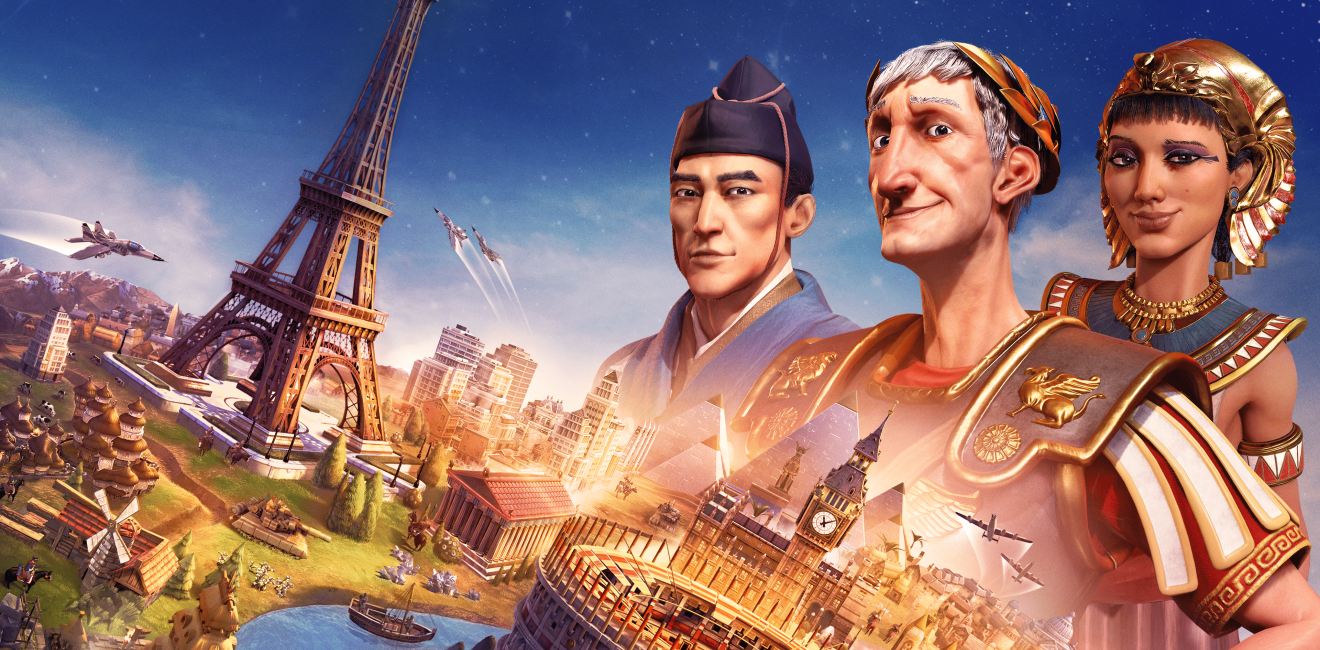The Wilson Center frequently engages with the impacts of supply chains and economics and globalization more broadly on international policy, but despite critical research in this area, there's a larger issue with international trade. In April 2024, Ambassador Mark A. Green, president and CEO of the Wilson Center, wrote in “Trade? What's That?,” "The growth of international trade has been one of the most important economic developments in modern times…And yet in 2024, trade seems to have become the proverbial 'skunk at the pool party.' Political leaders look away whenever the topic comes up." While there's been attention paid to the decline of trade agreements and increased restrictions are compounding to a general decrease in trade growth, the question remains on how we can get decision leaders and the public to engage and understand with this skunk.
Economic systems, for the uninitiated, can get complicated real quickly. That's why one of the first games we developed was Budget Hero (now The Fiscal Ship) which focuses on US national debt and budgetary policy—a topic that, before these games, was only fun to those in DC but now, just through our game, over four million people have tried their hand at. A cornerstone of engagement is understanding the nuances of the problem, and playing a game can be one resource for both making an unsavory topic accessible and deepening understanding.
A similar paradigm could be—and in some cases, is being—applied to international trade. For this Games Round Up, we highlight games that are being used to illustrate core concepts of international trade. We've organized the games into two use cases. First, we present those designed as educational products, specifically as a direct representation of international trade. In general, this was a very lean category with few examples. However, there are many entertainment-first, commercial games that, although not designed with pedagogical theory, can be used to understand international trade, even tangentially. Both types of games can be useful in motivating players to take that first dive into understanding international trade.
(Free; Browser; Middle School+)
First launched by the International Monetary Fund in 2003, Trading Around the World explores the intricacies of global trade and showcases the magnitude of the interconnected relationships trade forms around the world. The player is assigned the role of a trader who is tasked with buying and selling goods on an international scale. The player can choose from different continents to represent; in-game, each continent’s main exports are listed for the player to choose from. The other non-player traders set prices for the exports, while the player can choose which of their continent’s goods to trade as well. Based on how well one negotiates balanced prices for goods within the game, the global economy will become more or less healthy.
(Free; Browser; Middle School+)
Convene the Council by iCivics lets the player step into the world of foreign policy as the President of the United States. As the president, one is tasked with making foreign policy decisions that affect the US economy, security, and health while handling international crises, one’s National Security Council, and other government agencies. While not a direct simulation of global trade, Convene the Council gives players a glimpse into what decision-making regarding foreign policy is like. Trade on an international scale is informed by the foreign policies of every nation.
(Free; Browser; Elementary School+)
The Stock Market Game, created by the SIFMA Foundation, educates the player on international economics, investing, and personal finance through simulating the global capital markets. With three difficulty levels, The Stock Market Game simulates the experience of investing with stocks, bonds, and mutual funds. It provides the player with an immersive experience which includes a news feed that relays to the player changes in each company’s stock. In impact assessments of the game, students’ financial knowledge as well as saving and investing habits were positively impacted after playing. According to Investopedia, stock markets have a direct impact on the functions of international trade and the state of the global economy.
($59.99; Windows, macOS, Linux via Steam or Epic Games, Xbox, Nintendo Switch, PlayStation; Rated E10+)
Sid Meier’s Civilization VI is the latest title in the classic turn-based strategy game developed by Firaxis Games, with Civilization VII just announced. In the Civilization franchise, players play the part of world leaders trying to advance their, you guessed it, civilization forward while competing for resources and advancement with other world powers.
Players of Civilization VI develop their civilization across an in-game millennia, facing a range of intricacies across different time periods. They will also come in contact with a variety of rulers throughout periods of the world’s development, with whom they can form allegiances or trade routes.
The Civilization series has been the subject of studies regarding how games can inspire players to be civically engaged as well as spark interest in economics and history. In his article “What Do Players Learn from Videogames?,” John Majewski, a history professor at UC Santa Barbara, describes “Civilization as a gateway to history.” Players that he found expressed interest in history would credit their passion to being introduced to these topics through Civilization.
(Free; Windows, macOS, Linux via Steam or Epic Games; Rated T for Teen)
First making its way onto the market in 2003, CCP Games’ EVE Online is a science fiction MMORPG set in space. EVE Online is well known for its inclusion of a player-run society which includes operations such as mining, manufacturing, and trading. Many of the economic decisions made are unscripted and not prescribed within the game’s mechanics; often players decide trends in economic structure. In a study from Ghent University, the in-game behavior of players in EVE Online is shown to be affected by real-world contexts. Researchers found trends within the player bases of several countries that indicate the real-world unemployment and exchange rates make players trade more efficiently and cautiously in-game, suggesting that games like EVE Online can be utilized to simulate economies in order to infer what real-world reactions would be. EVE Online’s usability for economic analysis provides a noteworthy example of the use cases of games and their ability to reflect serious topics.
($49.99; Windows, macOS, Linux via Steam; Rated T for Teen)
Created by Paradox Interactive, Victoria 3 is the third entry in the grand strategy franchise Victoria. The player is tasked with guiding a nation over a century. Beginning in 1836, players experience legislative and economic decision-making through a changing global economic landscape.
Paradox Interactive, the company behind Victoria 3 and other games on this list, is well known for their grand strategy designs. Strategy games are known for illustrating complex economies. Students at Uppsala University showed intricate and detailed trade and economic systems in grand strategy games often pull from real-life influence. Similarly, a study by Abdullah Gul University shows that through engaging with these systems in game, players may become more interested in history, culture, and politics.
($39.99; Windows, macOS, Linux via Steam or GOG, Xbox, PlayStation; Rated E10+)
In Stellaris, another game by Paradox Interactive, the player is tasked with exploring the cosmos while ensuring the stability of their galactic empire. In Stellaris, players can interact with different species of persons, all with their own unique goals and philosophies. While Stellaris is more of an abstraction of real-life as compared to other games on this list, it still provides a robust trading and economic system that is paramount in grand strategy games. A trade system which simulates (intergalactic) trade routes, contains a market based on in-game materials and goods (including dark matter), and allows the player to choose different policies that emphasize economic goals such as increasing the wealth of one’s empire, benefiting consumers, or mutual aid.
Likewise, Stellaris’s themes echo the ever present, real-life question of who gets to govern space, which are highlighted by the Wilson Center’s Across Karman initiative. You can also check out the Wilson Center’s own take on an interactive about space, Launching into Orbit.
($19.99; Windows, macOS, Linux via their website; Rated E for Everyone)
Capitalism Lab is a business simulation game developed by Enlight. Released in 2012 as the successor to the critically acclaimed Capitalism 2, the player builds and controls a business in game. Capitalism Lab stays true to life through simulating real-world business considerations including marketing, manufacturing, purchasing, importing and retailing. The Capitalism series has been highlighted by outlets such as IGN, GameSpot, CNN, and the Discovery Channel for its gameplay and impact. Professors from Stanford and Harvard utilized it in their classrooms, stating sentiments such as “This game does an excellent job of modeling many of the key aspects of modern business” as their reason for doing so.
($39.99; Windows, macOS, Linux via Steam; Not yet rated, recommended High School+)
Workers and Resources: Soviet Republic is a real-time strategy game set in a Soviet republic. Players must ensure the stability of their republic while grappling with changing global markets, building infrastructure, and satisfying their citizens. In game, players can sell and purchase resources and goods from Western and other Soviet countries while experiencing a close-to-life simulated economy. In Workers and Resources: Soviet Republic, the player is tasked with building a city from the ground up through a non-traditional economic lens.
The Cold War and the continuing effects of the Soviet economic system, as highlighted by the Wilson Center's Kennan Institute and Cold War International History Project, are not something to be lost to the history books. This game brings these themes to the forefront and provides a unique way of engaging with economics.
Conclusion
With global trade’s critical role in contemporary policy, games would be an accessible way to learn and engage with key principles in international trade. Through this round up, we see the range of ways that games have engaged with international trade, especially as it is reflected in the commercial game space. There are many varying ways to discuss and disseminate information about global trade through games, whether providing more literal simulated experiences or inspiring interest in economics and civic engagement. Likewise, this effort shows that games specifically designed with the central goal for educating or reflecting research about international trade are few and far between. In the future, we hope to see more game studios filling this necessary part of civic engagement.
This post is intended for educational purposes only. This is a sample of the field and not a comprehensive list. We did not play every experience and game; in some cases, we relied on gameplay recordings, reviews, and publications surrounding them. Being included on this list is not an act of endorsement by the Wilson Center, Science and Technology Innovation Program, or Serious Games Initiative. Did we miss a game? Email us at games@wilsoncenter.org









